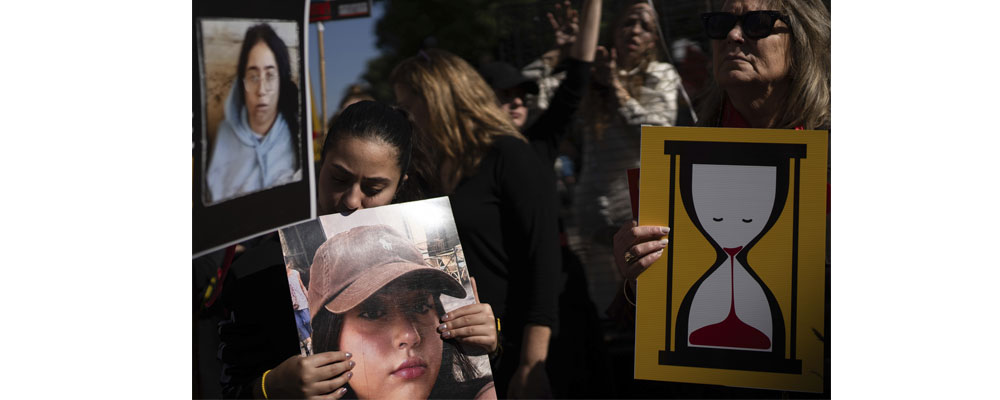
Jan. 21: A member of Israel's War Cabinet cast doubt on the country's strategy for releasing hostages held by Hamas, saying only a cease-fire can free them, as the prime minister rejected the United States' calls to scale back its offensive.
The comments by Gadi Eisenkot, a former army chief, marked the latest sign of disagreement among top Israeli officials over the direction of the war against Hamas, now in its fourth month.
In his first public statements on the course of the war, Eisenkot said that claims the dozens of hostages could be freed by means other than a cease-fire amounted to spreading “illusions” — an implicit criticism of Prime Minister Benjamin Netanyahu, who heads the five-member War Cabinet and who insists that pursuing the war will win their release.
Eisenkot's statements came as some relatives of hostages have intensified their protests, a sign of mounting frustration over the government's seeming lack of progress toward a deal to release the remaining captives.
Eli Shtivi, whose 28-year-old son Idan has been held in Gaza since he was kidnapped by Hamas militants from the open-air Tribe of Nova music festival on Oct. 7., began a hunger strike Friday night outside Netanyahu’s private residence in the coastal town of Caesarea. Shtivi pledged to eat only a quarter of a pita a day — the reported daily meal of the hostages — until the prime minister agrees to meet with him. Dozens of people joined him for what organizers said was an overnight protest.
The day before, rifle-toting Israeli police scuffled with protesters who blocked a major highway in Tel Aviv to call for an immediate deal to release the hostages. Police detained seven protesters overnight, according to Israeli media.
Meanwhile, communications began to gradually return in Gaza after a nearly eight-day blackout, the longest such cutoff since the war began. The phone and internet blackout made it nearly impossible for people in Gaza to communicate with the outside world or within the territory, hampering deliveries of humanitarian aid and rescue efforts amid continued Israeli bombardment.
For the past week, Gaza residents have struggled to get a signal on their phones. Many head to the beach, where some can pick up a non-Palestinian network. With families scattered across the tiny Mediterranean territory, networks are critical to make sure relatives are still alive as Israeli airstrikes crush homes.
“The people behind me came to check on their friends, family and loved ones," said Karam Mezre, referring to others sitting with him on a rock at the beach in central Gaza, scanning their phones.
Even when communications return, "it is intermittent and not stable,” said Hamza Al-Barasi, who was displaced from Gaza City.
The blackout has also made it difficult for information to get out of Gaza on the daily death and destruction from Israel's offensive. The assault has pulverized much of the Gaza Strip, home to some 2.3 million people, as Israel vows to crush Hamas after its unprecedented Oct. 7 raid into Israel. In the attack, about 1,200 people, mostly civilians, were killed and 250 others taken hostage. Israel has said more than 130 hostages remain in Gaza, but not all of them are believed to be alive.
Israel’s offensive, one of the deadliest and most destructive military campaigns in recent history, has killed nearly 25,000 Palestinians, according to Gaza health authorities, and uprooted more than 80% of the territory’s population.










